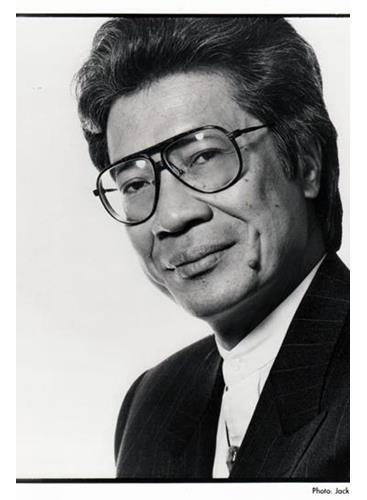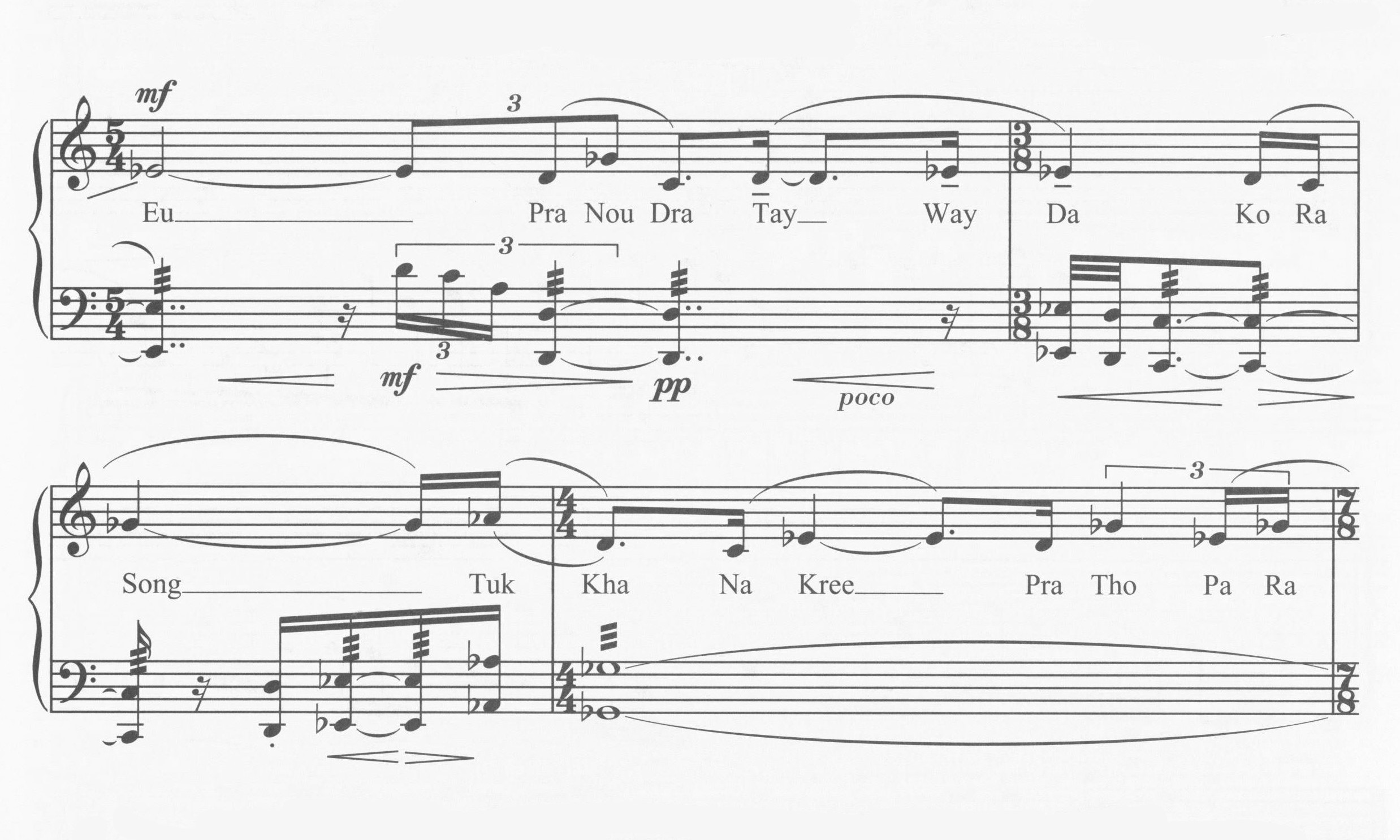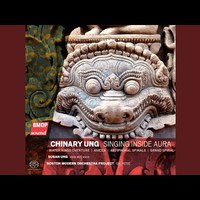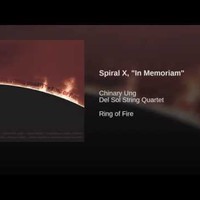-
Name
-
Chinary Ung
-
Bio
-
Chinary Ung is often associated with that group of Asian-born composers whose music incorporates aspects of eastern musical characteristics into a western classical music setting. Aside from specific cultural and generational distinctions, the principal difference between Ung's work and theirs is that for many years he was prevented from engaging directly with the source of his cultural heritage as his native country was being torn apart by the scourge of the Khmer Rouge. Indeed, as the people and culture of Cambodia were being systematically destroyed, Ung took it upon himself to rescue some facet of the traditional music he had known as a child, reconstituting Cambodian musical traditions through his performances on the roneat-ek -- the Cambodian xylophone. This project reflects the qualities of responsibility and of hopefulness that are so strongly a part of Ung's personality.
Ung's Cambodian roots are woven into the fabric of his identity, but the musical aspects are, as a result of his peculiar circumstance, keenly related to memory. For many years -- through the late 1980's -- Ung's music had a plaintive character in its modally-inflected, melodic behaviors, as if he were reaching back to another time uncorrupted by political tumult. Ung's work of this period established him as a major figure in American music, winning citations from virtually every major musical arts institution in his adopted country. He was the first American composer to win the prestigious Grawemeyer Award, for Inner Voices. That work, along with the Spirals series indicates a self-referential artistic project where one seeks spiritual strength and inspiration through meditation and quiet contemplation, traits of Buddhist spiritual exercises. The Spirals series in particular shows an affinity for the connection between pieces.
The creative impetus draws from many sources -- such as dreams -- and there is a distinct pictorial and spiritual basis to Ung's music. Aura, a large work for two sopranos and chamber ensemble written in 2005, refers to the multicolored aura surrounding the Buddha's head. The work's extensive amplification draws the listener into the performance space, as if invited into the healing light of the Buddha. Rain of Tears, a concerto for chamber orchestra composed in 2006, commemorates the victims of natural disasters in Bandeh Aceh and New Orleans. Its many variants on rising and falling figures present a staggering interpretation of wave imagery. In this work, Ung invokes the Buddhist concept of Shunyata, which he describes as spiritual openness, in order to inspire four distinct statements of compassion.
Ung's extensive orchestral catalog has been commissioned and performed by major orchestras throughout the United States and abroad, including those in Philadelphia, Louisville, Pittsburgh, Tokyo, Sydney, Basel, as well as the Saint Paul Chamber Orchestra, and the American Composers Orchestra. Boston Modern Orchestra Project released a recording of Ung's orchestral music in 2015. Ung's work has been commissioned by the Meet the Composer/Reader's Digest Commissioning Program, the National Endowment for the Arts, and the Ford, Koussevitsky, Joyce, and Barlow Foundations. In 2014 he was given the John D. Rockefeller 3rd Award by the New York-based Asian Cultural Council.
Ung recently participated in the Pacific Rim Festival at University of California Santa Cruz, where his work entitled Singing Inside Aura III, for Amplified Singing Violist and Korean Traditional Orchestra, received performances at both UC Berkeley and UC Santa Cruz. This piece, commissioned by the Gugak Center, is projected to receive another performance in Seoul, Korea, December 2017. Additionally, the National Endowment of the Arts has extended support for the forthcoming Therigatha Inside Aura, dedicated to the peacemakers of tomorrow. This spring, Chapman University will present a Chinary Ung Portrait Concert at the new Musco Center for the Arts, and he begins his residence at Scripps College in March 2018, where Therigatha Inside Aura will be performed and recorded.
By any measure, Chinary Ung is an astonishingly prolific composer, yet his focus is rarely turned inward. Indeed, one notes in his activities as a cultural leader and educator a profound sense of responsibility to a broader cultural and societal context. In the years since the holocaust Ung has worked with numerous institutions and individuals who share his dedication toward preserving Cambodian culture and forging cultural exchanges between Asia and the West, such as The Asian Cultural Council. He was President of the Khmer Studies Institute in the U.S.A. between 1980-1985, and was an advisor for the Killing Fields Memorial and Cambodian Heritage Museum of Chicago and a member of the Cambodian-Thai cultural committee.
As an educator, Ung has taught courses in Southeast Asian music and he has instructed generations of young composers at several institutions in the United States, and now, through a series of residencies, in Asia as well. In this regard he follows the example of his mentor, Chou Wen-chung. He holds appointments at University of California, San Diego, where he is Distinguished Professor of Music, and at Chapman University, where he is a Presidential Fellow and Senior Composer in Residence. For the 2017-2018 academic year he is the Karel Husa Visiting Professor in Composition at Ithaca College. He and his wife Susan direct the Nirmita Composers Institute each summer, with the goal of providing compositional direction and opportunity to musicians from Southeast Asia.
His music is featured on recordings released on Bridge, CAMBRIA, CRI, New World, Argo, and oodiscs, among others. Chinary Ung's compositions are published exclusively by C.F. Peters Corporation and they are registered under BMI.




